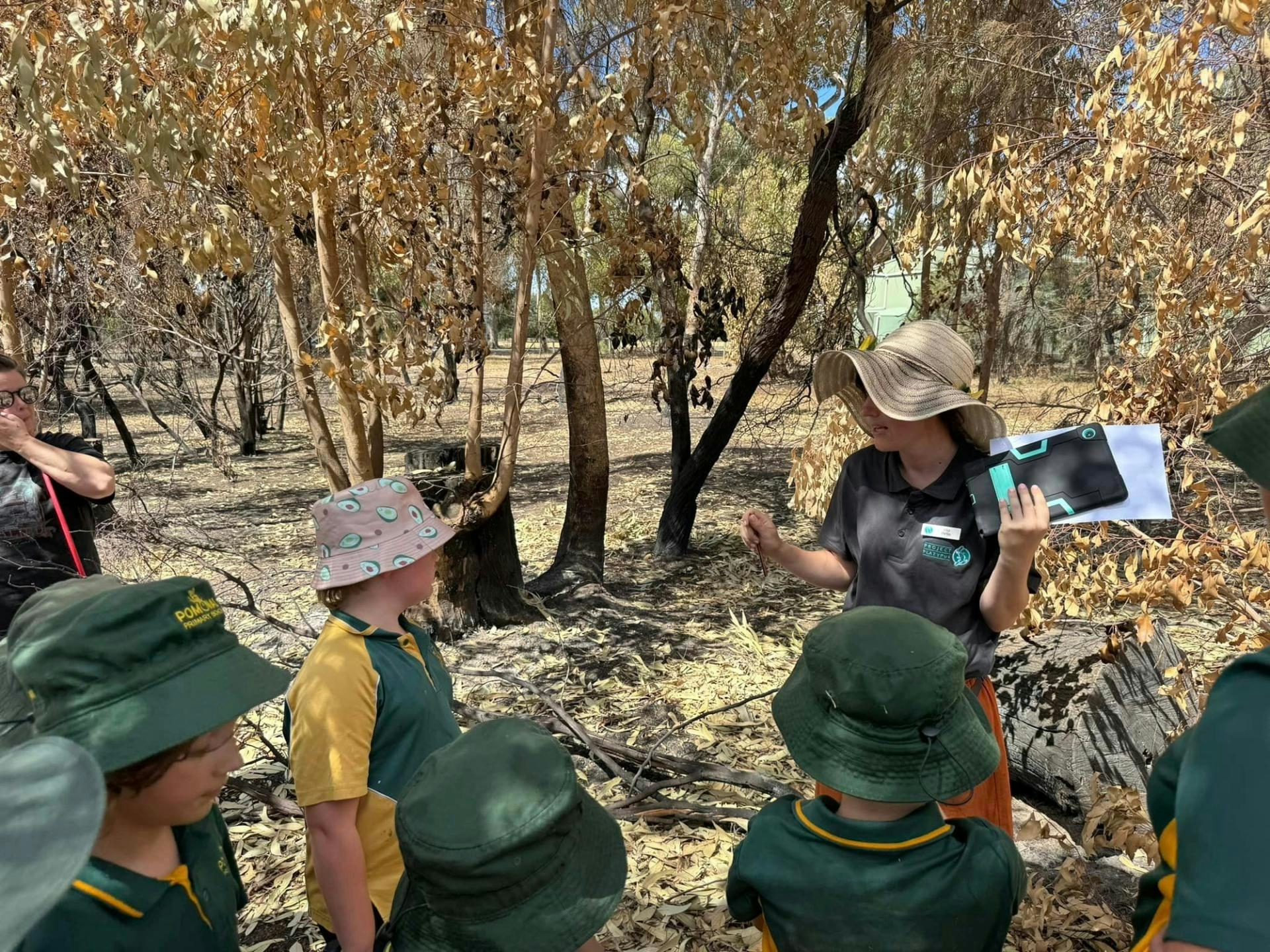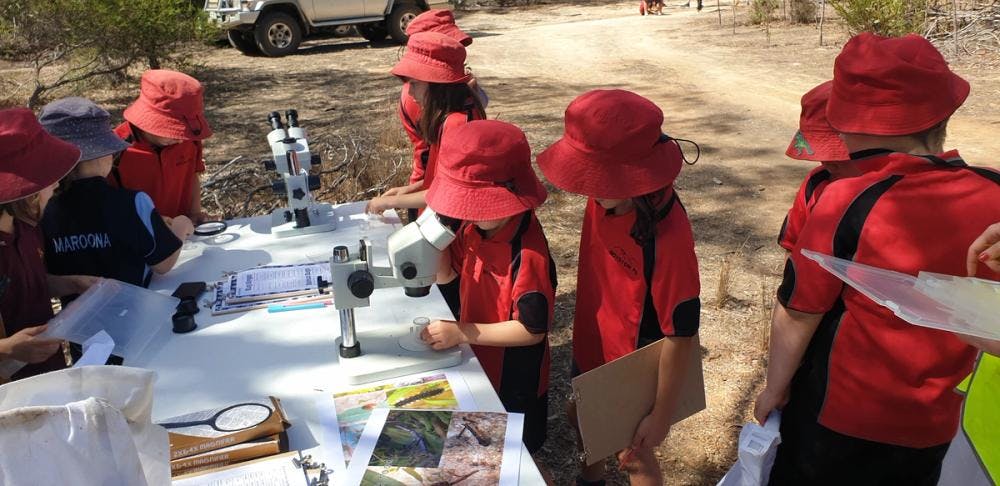21 March 2024
In the wake of the devastating bushfires that swept through Pomonal, the resilient young students from Pomonal Primary School have taken on a new project to monitor the recovery of the bushland surrounding their school.
Dozens of homes were lost in the Pomonal fires, and while the area around the school was scorched, the school buildings miraculously survived. The Primary School set themselves quickly to the task of supporting habitat recovery, reaching out to our Landcare network only a couple weeks after the fires to get started. They had already prepared a corner of their main classroom that would become their dedicated 'science corner' for monitoring habitat recovery. Now they just needed data!
Landcare facilitator, Elia, and Events Coordinator, Amelia, made a visit to the school to get the students started. We started with a discussion of the importance of fire in our local habitat. Many plant species in the Grampians have evolved to rely on fire for their reproduction and growth. Post-fire, the landscape often witnesses the blooming of unique plant species that are visible only in the years immediately following such events. This transient ecosystem presents the students with a rare opportunity to observe and photograph these ephemeral botanical wonders.
In an interactive session, the students paired up and were tasked with selecting their own monitoring points around the school grounds. They covered a variety of views, including areas under trees, within creek beds, and open sandy flats. To ensure consistent photos could be taken, each pair installed a small post in the ground at their chosen location. This post serves as a reference point for aligning photographs, enabling the students to track and visualize the progression of habitat recovery over time. You can see an example of the outcome of using consistent photo points below, taken in April three years apart at a native grassland site in Rhymney:
The school is also eager to delve deeper into the biodiversity of the recovering habitat. Earlier this month, Pomonal Primary school had joined their other local cluster schools in a massive 'bug-bioblitz' in Moyston, where the students leaned techniques for surveying invertebrate biodiversity (you can read more on that activity in the post linked at the bottom). After this activity, the students have felt inspired to study how the invertebrates of Pomonal return in fire-affected areas, as part of their monitoring efforts.
The resilience and enthusiasm displayed by these young environmentalists is an inspiring testament to the enduring spirit of the Pomonal community, even in the face of adversity. Through their hands-on bushland recovery project, these students are not only learning valuable lessons about ecology and conservation but also actively contributing to the restoration and preservation of their local environment. The school can't wait to share their findings with the wider community, as they record changes leading us into what may be an incredible show in the spring...

Elia Pirtle
Landcare Facilitator and Communications Officer

